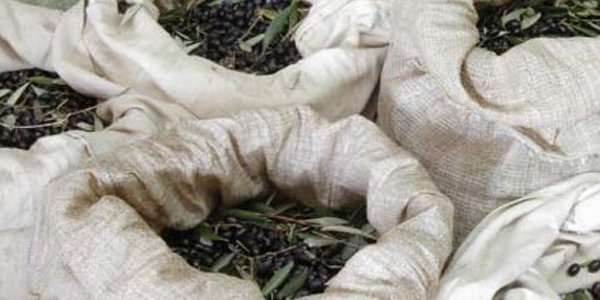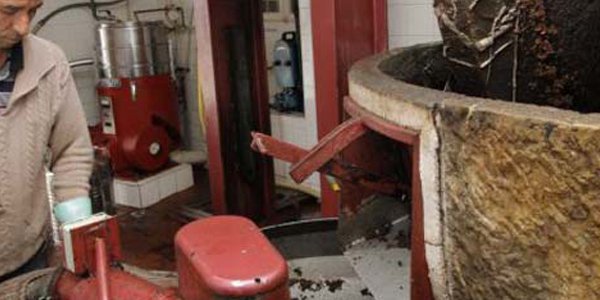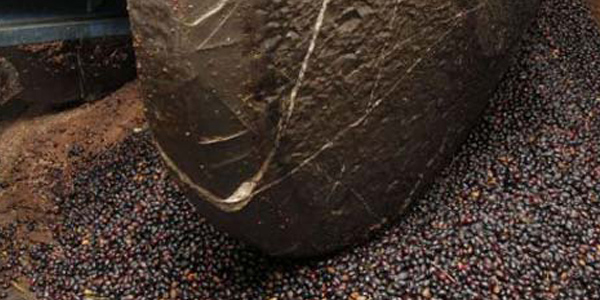The Stone Mill
Our company produces about 5000-6,000 liters of extra virgin olive oil. During the winter, from November to mid-February it is possible to visit the mill, watch the production and taste the freshly pressed extra virgin olive oil. We carry out the pressing of the olives with millstones (or molazze). The working process is called “cold pressing”: the temperature of the olives during processing does not exceed 27 ° C and the extraction process is exclusively mechanical. Solvents and chemical substances are not used in the manufacturing process.
The process
The olives are first washed and then crushed by the mills for about 30 minutes. The mechanical action is exercised by the rotation of two large stone wheels on the olives being processed. Contrary to what one might think, the leakage of the juices from the fruits is not caused by crushing, but by the action of rubbing the fragments of hazel on the olive pulp. The function of the wheel therefore is to crush the stones in dimensions suitable for the purpose and to remix the mass being processed
In the past the muller consisted of a single wheel operated by means of an arm from a donkey or a horse. The current muller is driven by an electric motor. Milling is done with a slow rotation, 12-15 revolutions per minute for a total time of 30 minutes. One of the advantages of classic milling is a low degree of emulsification of the olives paste, which allows for higher qualitative of olive oil. The quality is also improved by an average higher organoleptic evaluation since the oil thus obtained has distinctly more aromatic scents, and a less spicy and less bitter taste than the oil obtained with an industrial type of processing. The quantity of olives processed in a cycle is 2.5 quintals in order to obtain a quantity of pasta sufficient to load a hydraulic press during the extraction phase. The olive paste thus obtained is inserted into fiscoli (rope discs in the shape of a circular bag) and then by hydraulic press, pressed with progressive pressure that reaches 400 bars. The dark yellow liquid obtained by pressing is then further processed by a centrifuge which has the function of “cleaning” the oil. The centrifuge separates the oil from the water, both present in the fruit used during processing, and from superfluous fruit particles. Each production cycle takes about 60 minutes and processes an average of 260 kg of olives. 10 kg of olives produce on average 2 kg of oil; The oil thus obtained is left to settle in stainless steel tanks, in a dark place, with a constant temperature for at least a month, after which our extra virgin olive oil is ready to be packaged.





